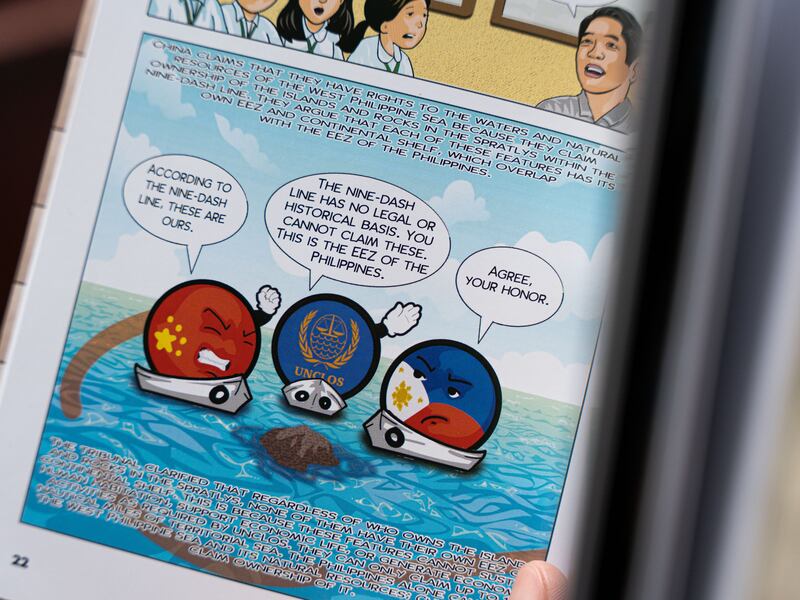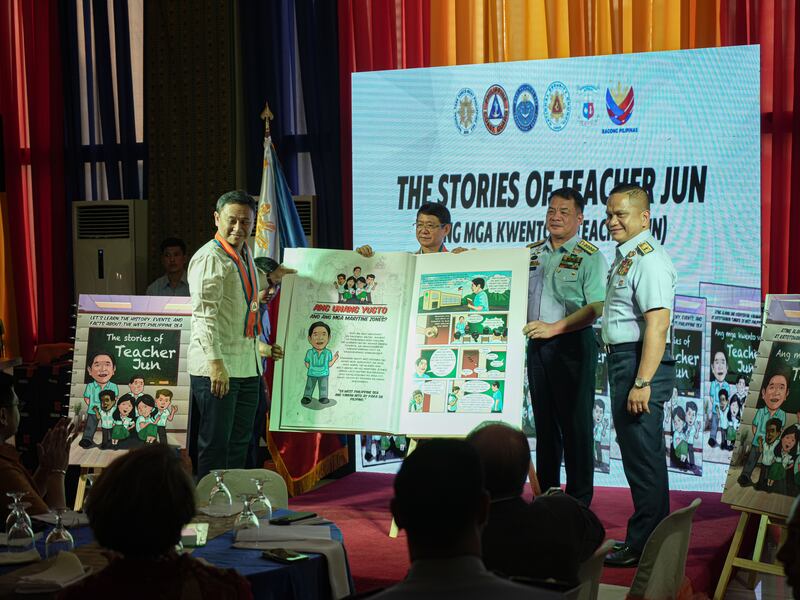At one of Manila's oldest public high schools, a group of 10th-grade students pours over a new comic book that tackles an unusual topic: Manila's ongoing territorial dispute with Beijing in the South China Sea.
Last month, Philippine Coast Guard, education and national security officials were on hand at the official launch of the comic book titled “The Stories of Teacher Jun.”
It tells the story of a high school teacher and his students as they discuss Manila's territorial claim in the contested waterway and a 2016 ruling by an international arbitration tribunal that dismissed Beijing's expansive claims to the sea.
Written in simple English and filled with vivid illustrations, the 40-page book aims to make a complex geopolitical issue such as the South China Sea dispute accessible and easy to understand for young Filipinos, its proponents say.
“It’s colorful and clear and the text is big enough to read it easily,” Jolian Kaye Torres, a 10th-grader at Victorino Mapa High School, told BenarNews. “And the way ‘Teacher Jun’ explains [the issue] is not complicated.”
Filipino officials are treating the book as a tool to educate students about their country's maritime rights and to counter what the Philippine government sees as a Chinese disinformation campaign in the maritime dispute.
“Chinese officials, along with state-sponsored media and individuals, continue to spread distorted and twisted narratives to malign our efforts and justify their unilateral claims,” National Security Adviser Eduardo Año said during a speech at the book’s launch on Jan. 24.
Tensions have been high lately between the two rival claimants, with Chinese coast guard ships often spotted sailing into South China Sea waters of the Philippines’ exclusive economic zone.

Officially, the South China Sea dispute is a topic not currently taught in Philippine schools. But there are growing calls for it to be included in class discussions, amid Manila's territorial row with Beijing.
“If you’re a student reading this, you’ll understand the issue better,” said Torres, the student at Victorino Mapa High.
“I feel like at the end of the comic [book], there’s a sense of nationalism formed in you.”
Officials at the school – established in 1923 and home to thousands of students in the Philippine capital – said they were considering using the book in their classrooms.
The book was funded through donations. So far, over 11,000 book copies have been distributed to schools and public libraries, among other institutions in the country.
Philippine officials hope the comic book will reach more young Filipinos living in remote areas who have limited access to news sources.

In reacting to the book’s launch, the Chinese Embassy in Manila called the initiative a form of political “manipulation.” In Beijing, state media outlets described the book as stirring up “anti-China sentiment” in the Philippines.
The comic book was aimed in particular at "targeting young students through a manipulative, brainwashing approach," the state-run Global Times newspaper reported.
In Manila, officials pushed back against Beijing’s criticism.
The Philippines will do everything to “fight misinformation, disinformation and false narratives to put forward the truth,” Año said.
RELATED STORIES
[ Troubled Waters: The South China SeaOpens in new window ]
[ South China Sea: 5 things to watch in 2025Opens in new window ]
